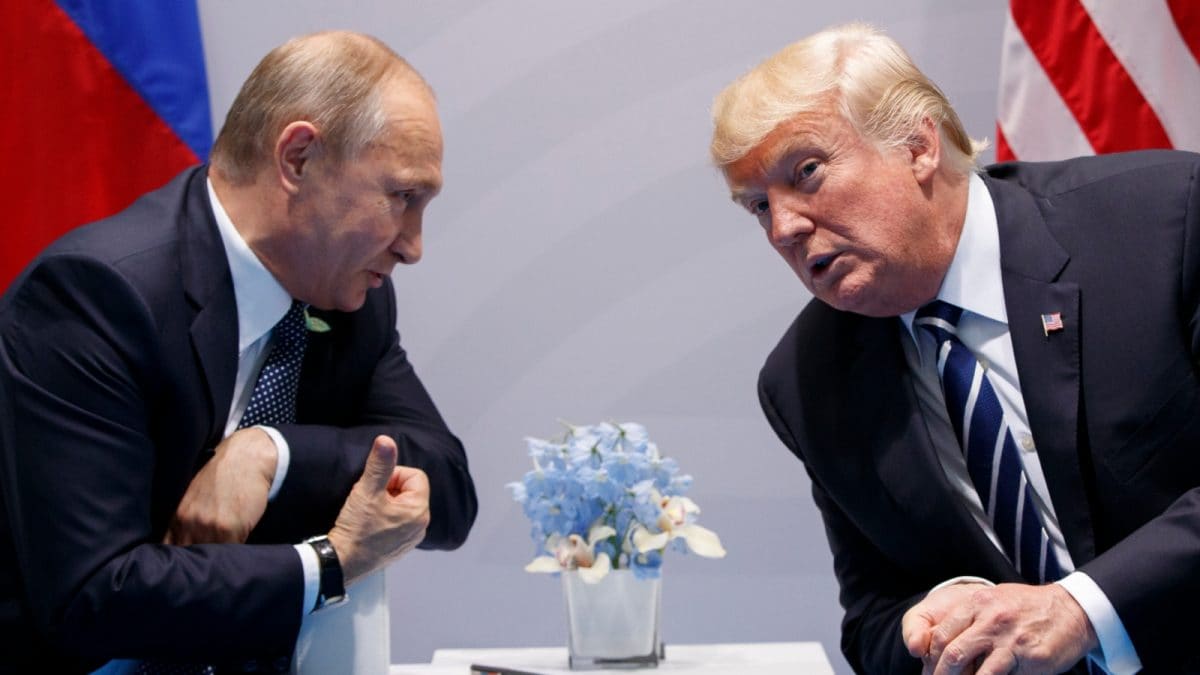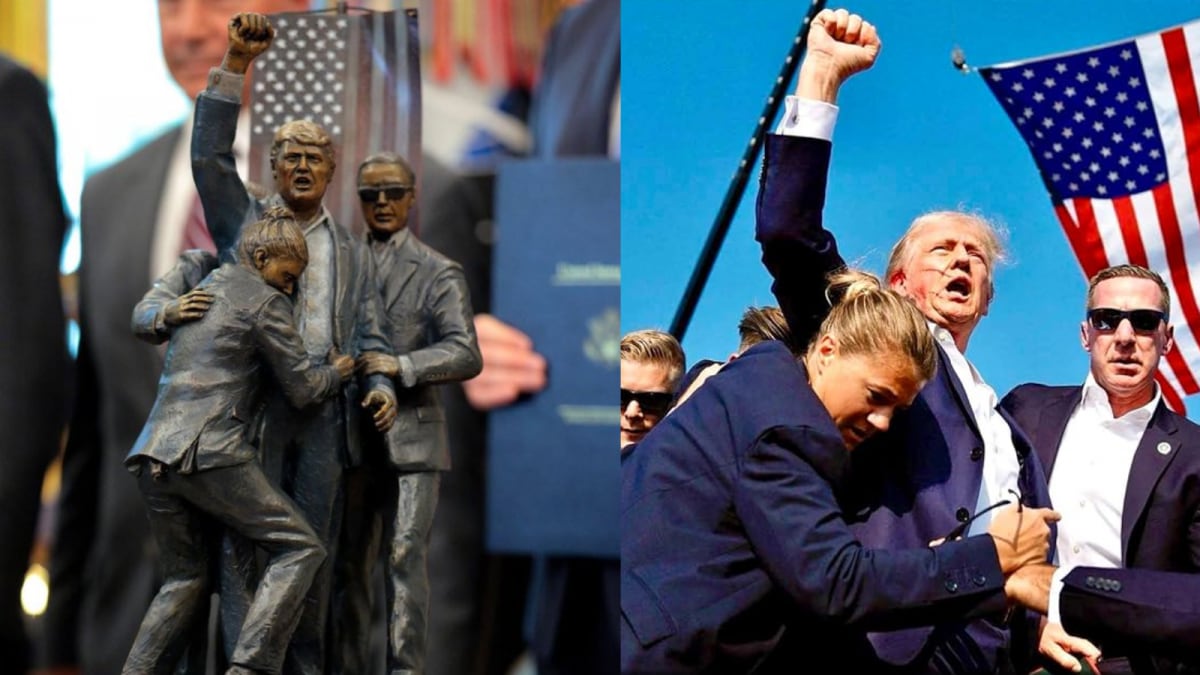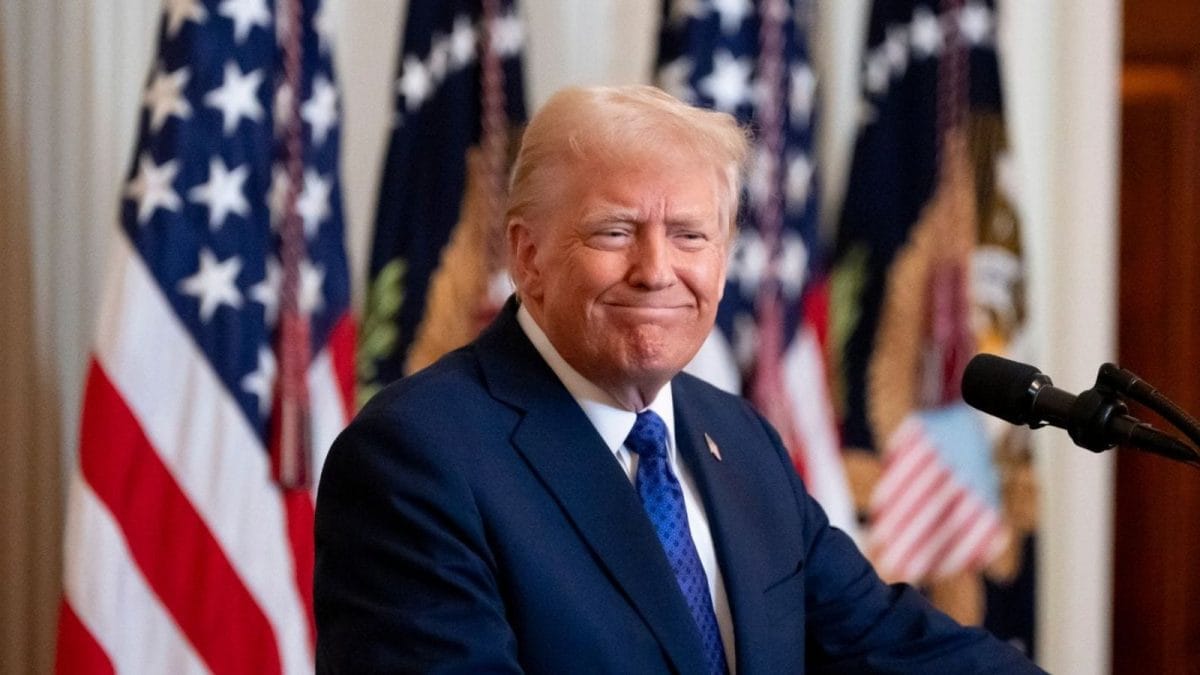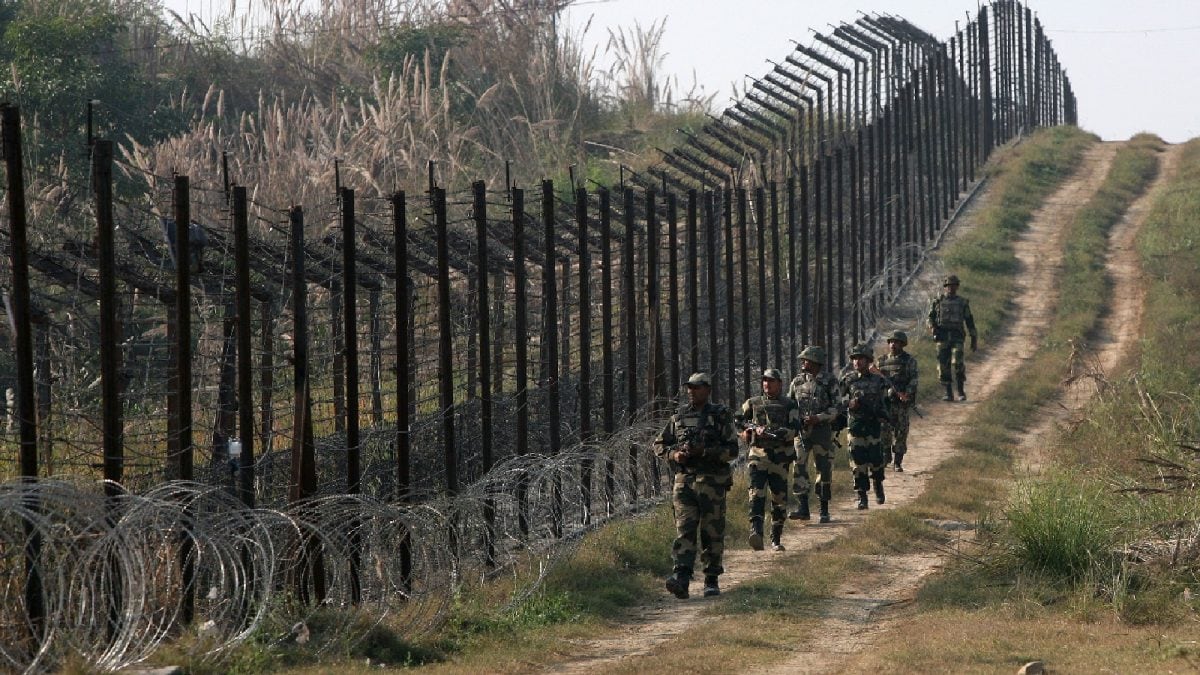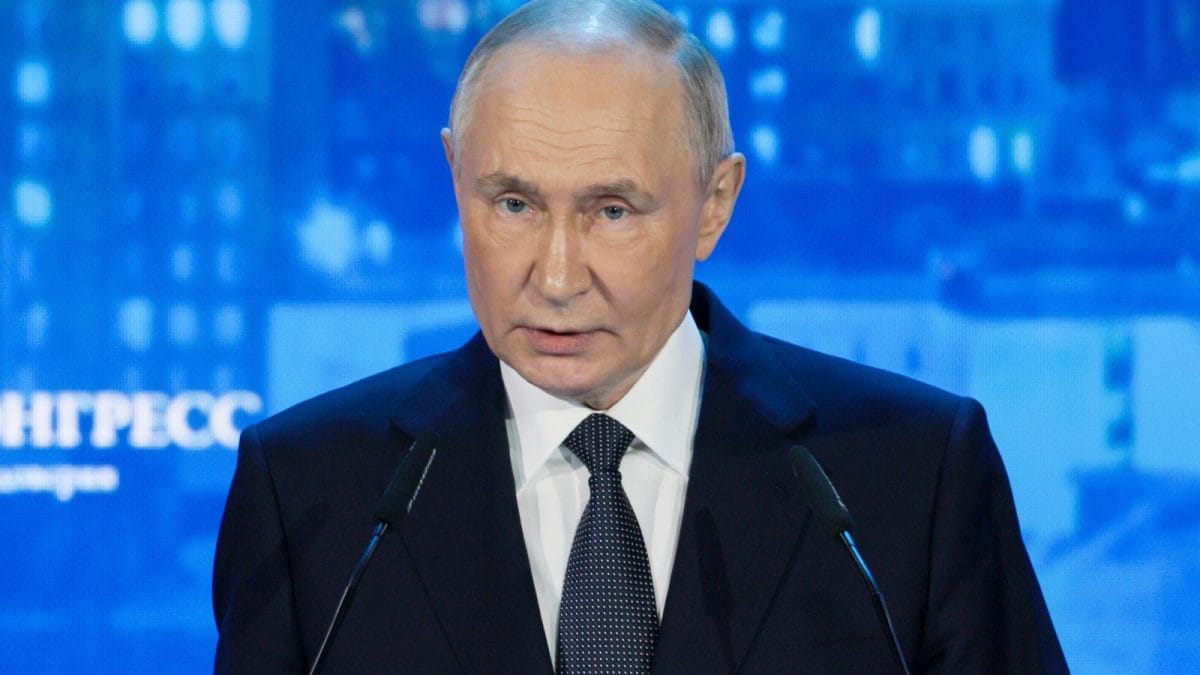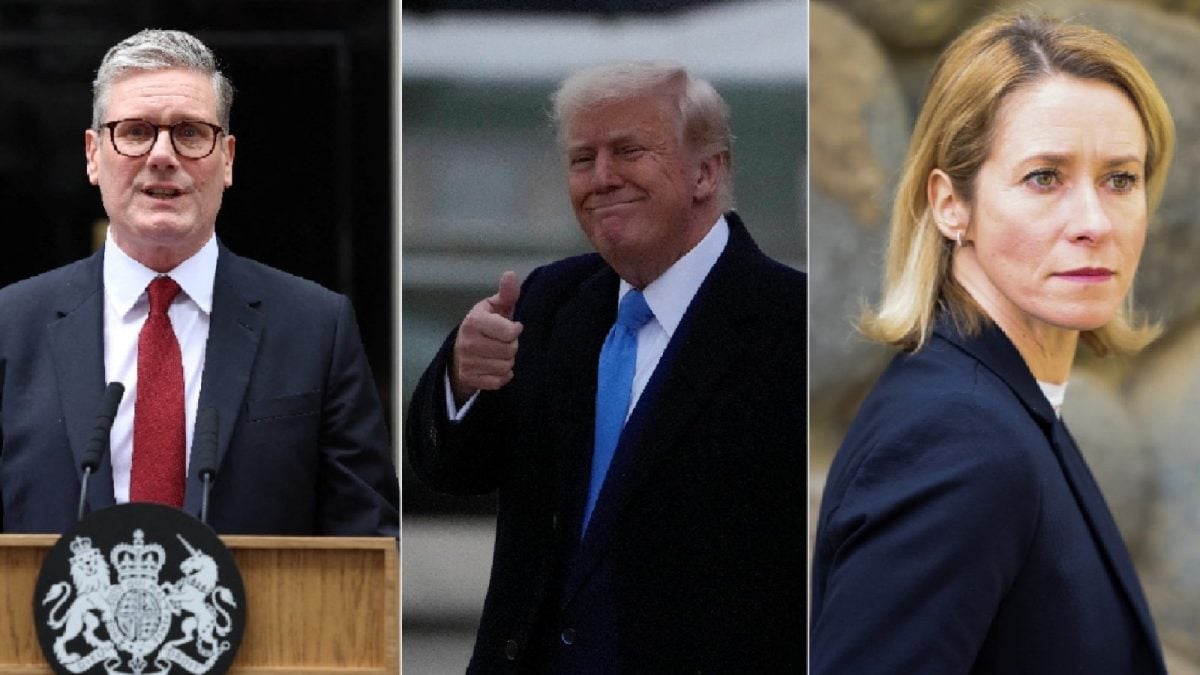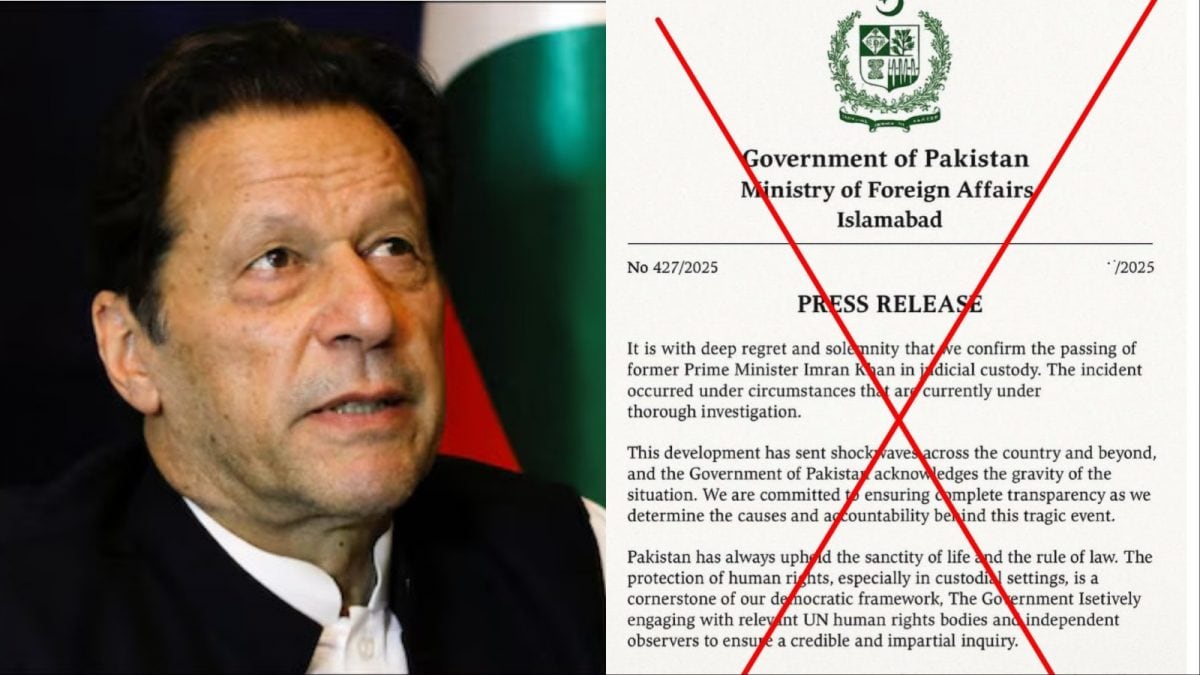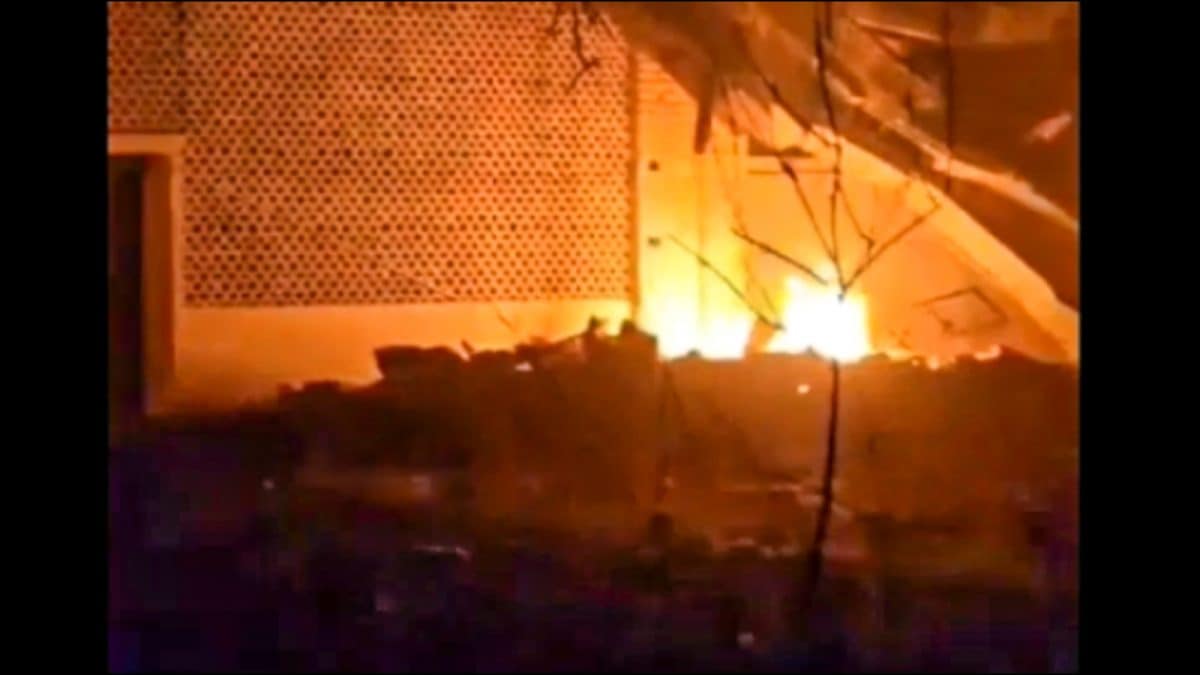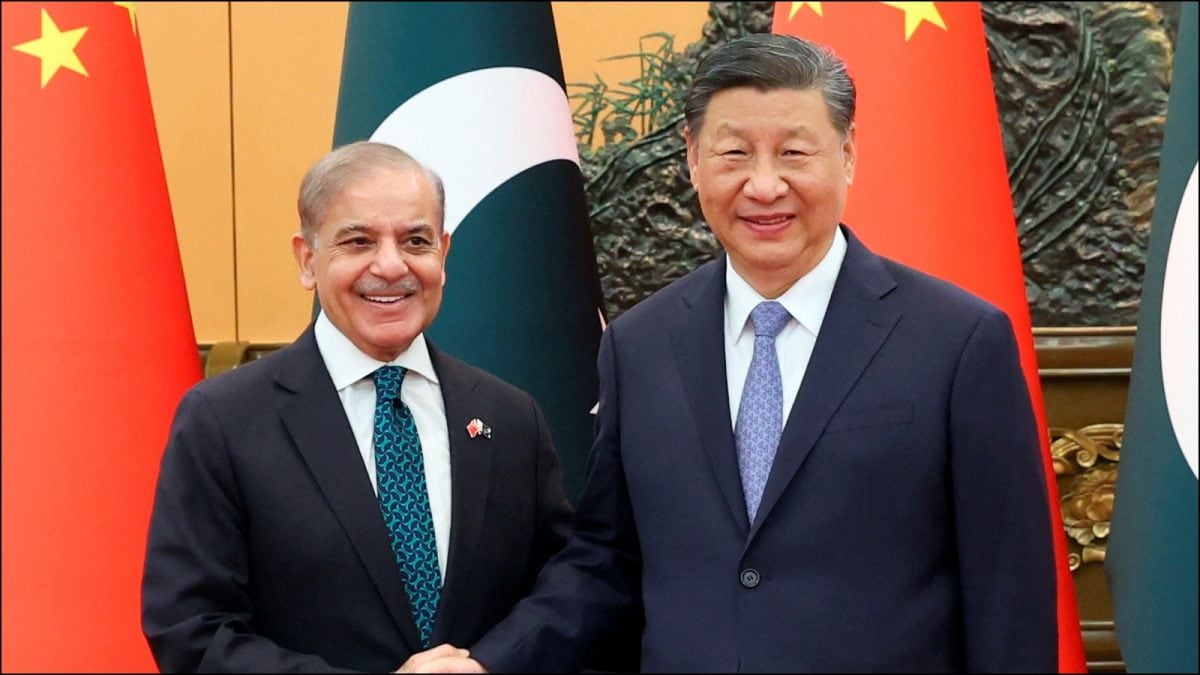'We're not looking at pause in tariffs,' Trump says
Lucy Campbell
Asked if he would be open to a pause in tariffs to allow for negotiations, Trump says: “We’re not looking at that.”
He says there are many countries coming to negotiate deals with the US. These will be fair deals, he says. In some cases they’ll be paying substantial tariffs, he adds.
When asked whether countries could negotiate down the 10% baseline tariff, Trump insisted that the tariffs have been effective in getting countries to go to the negotiating table.
“If I didn’t do what I did over the last couple of weeks, you wouldn’t have anyone who wants to negotiate,” Trump said. “Now they’re coming to us.”
Key events Show key events only Please turn on JavaScript to use this feature
Summary
Here’s an overview of what happened today:
Stock markets around the globe continued to fall today, with the FTSE 100 and other European markets seeing further falls in the day.
The US stock market had a rocky day, though the main indexes seemed to stabilize by the afternoon.
US markets went up on an unverified rumor that Trump would delay the tariffs. The White House quickly denied the claim, calling it "fake news”. Later in the day, Trump confirmed that a pause is not being considered.
Trump threatened to increase tariffs on China by 50% if the country did not rescind its retaliatory tariffs against American exports.
Multiple business leaders, including Bill Ackman, Ken Fisher, Larry Fink and Jamie Dimon, spoke out against Trump’s tariffs today, forming a growing chorus of influential billionaires who are turning against Trump’s policy.
Markets close after rocky day of trading
After two straight days of deep plummets, markets appear to be slightly more stabilized this afternoon. The Dow was down 0.9% while the S&P 500 dropped 0.2% for the day. The Nasdaq was 0.1% up – a small gain, considering the index entered a bear market last week.
market chartStocks briefly went up in the morning going off an unverified rumor that the White House would delay tariffs, which was quickly squashed by the administration. Stocks ticked slightly down, then back up, in the afternoon.
Tech stocks had a particularly rocky day. Some companies, including Amazon and Meta, saw small gains, while Apple and Tesla both saw drops of at least 6%.
'We're not looking at pause in tariffs,' Trump says
Lucy Campbell
Asked if he would be open to a pause in tariffs to allow for negotiations, Trump says: “We’re not looking at that.”
He says there are many countries coming to negotiate deals with the US. These will be fair deals, he says. In some cases they’ll be paying substantial tariffs, he adds.
When asked whether countries could negotiate down the 10% baseline tariff, Trump insisted that the tariffs have been effective in getting countries to go to the negotiating table.
“If I didn’t do what I did over the last couple of weeks, you wouldn’t have anyone who wants to negotiate,” Trump said. “Now they’re coming to us.”
A plan is being floated in the White House for a tax credit for companies whose bottom lines will be impacted by retaliatory tariffs, according to Bloomberg.
The exporter tax credit will be a rebate issued at the end of the year and would require Congressional approval. Trump has not been briefed on the plan, according to sources who spoke to Bloomberg, though it has been proposed to his economic team.
It’s an acknowledgement of the harm that retaliatory tariffs will have on American exporters, who are facing a 34% tariff on exports to China and could face more from governments like the EU.
Donald Trump’s trade advisor Peter Navarro just published an op-ed in the Financial Times trying to argue that the new tariffs will fix a broken system.
“This long-overdue restructuring will make both the US and global economies more resilient and prosperous by restoring fairness and balance to a system rigged against America,” Navarro wrote. “This is not a negotiation. For the US, it is a national emergency triggered by trade deficits caused by a rigged system.”
Navarro makes no mention of the crashing stock market or worries about an impending recession.
Most recently, Navarro was in a scuffle with Elon Musk, who said on X: “A PhD in Econ from Harvard is a bad thing, not a good thing. Results in the ego/brains>>1 problem.” In response, Navarro dismissed Musk as a “car assembler”.
Another billionaire is publicly criticizing Trump’s tariffs. Investor Ken Fisher said on X that the tariffs are “stupid, wrong, arrogantly extreme, ignorant trade-wise and addressing a non-problem with misguided tools”.
Fisher added that “the fear is bigger than the problem” and that “as near as I can tell it will fade and fail”.
What Trump unveiled Wednesday is stupid, wrong, arrogantly extreme, ignorant trade-wise and addressing a non-problem with misguided tools. Yet, as near as I can tell it will fade and fail and the fear is bigger than the problem, which from here is bullish.
— Ken Fisher (@KennethLFisher) April 7, 2025Fisher joins other business leaders, including billionaire Bill Ackman and JPMorgan’s Jamie Dimon, in openly criticizing the tariffs.
BlackRock CEO says US 'probably in a recession'
BlackRock CEO Larry Fink said at an event this afternoon that most CEOs he talks to “would say we are probably in a recession now”.
Fink said one CEO said the airline industry – which cut 2025 forecasts due to falling demand – tends to be a canary in the coal mine for a recession. He also said that he’s concerned about elevated inflation.
A recession is technically when gross domestic product (GDP) goes down for two consecutive quarters, but is generally used to describe a major contraction in the economy.
Where markets stand so far
Markets have had a volatile trading of ups and downs so far today. Within the last hour:
The Dow gained back about 400 points of the 900 points it had lost at its lowest point today
The S&P 500 and Nasdaq are both up slightly for the day, by about 0.5% and 1.2%, respectively. The gains appear to be quickly fluctuating, though a fluctuation is better than the solidly downward slope the stock market was on at the end of last week.
Nvidia continued to climb up, while Apple and Tesla have slightly softened their losses from today.
Shares of US steel are now up about 14% after Trump ordered a review of Japan’s Nippon Steel’s takeover of US steel.
The global picture
The FTSE 100 closed down 4.38% or 352.90 points at 7,702.08, representing a third day of heavy falls for the London market.
Elsewhere, Germany’s DAX is down 4.3%, France’s CAC is down 4.8%, Italy’s FTSE MIB is down 5.2% and Spain’s IBEX is down 5.1% in further signs of the turmoil caused by Trump’s tariffs.
Japan’s benchmark Nikkei 225 index tumbled nearly 9% as concerns over a tariff-induced global recession continued to rip through markets on Monday, reaching 30,792.74 for the first time since October 2023.
Hong Kong and Chinese stocks dived, with Hong Kong’s Hang Seng index down 8% in early trade. Shares in Chinese tech giants Alibaba and Tencent fell more than 8%.
As usual, US trading ends at 4pm ET today, though it’s unclear exactly where the market will be at the end of the day.
Most of the world’s richest people have their wealth tied up in the stock market – either through investments or specific companies they founded. A recent Guardian analysis found that the world’s 500 richest people lost a collective $536bn in the two days after Trump announced the new tariffs – the biggest two-day loss recorded by the Bloomberg billionaires index.
Elon Musk, Mark Zuckerberg and Jeff Bezos saw the biggest drops so far. Musk’s Tesla has been falling ever since Trump took office, and Musk took a public role leading the Department of Government Efficiency. Tesla’s stock has dropped nearly 40% since the start of the year, briefly going up after reports that Musk was stepping away from his role at the White House, but then going back down after Trump announced his tariffs.
Meanwhile, Zuckerberg and Bezos have seen their net worths drop by $27bn and $23.5bn, respectively. Meta dropped about 10% and Amazon about 6.8% since the tariffs were announced.
This is Lauren Aratani in New York, and midday trading is currently underway in the US stock market. The Dow is down about 900 points, about 2.2% down from the start of the day, while the S&P 500 and Nasdaq Composite are 1.6% and 1.3% down, respectively.
While the drops are smaller than what was seen on Thursday and Friday, all three index funds have dropped around 10% since the new tariffs were announced, erasing nearly a year’s worth of gains.
Certain stocks have also continued to drop today: Apple and Tesla are both down about 5%. Over the last week, Apple saw its stock drop down nearly 20%, as its supply chain relies heavily on Chinese imports.
In London, stocks were heavily depressed during Monday’s session, although they briefly swung higher during a rollercoaster afternoon amid conflicting reports over a potential pause in tariff policy.
The FTSE 100 declined by 352.9 points, or 4.38%%, to close at 7,702.08.
Monday’s session began with firm drops in the Asian markets after more reciprocal tariff announcements over the weekend weighed on trading sentiment.
Axel Rudolph, senior technical analyst at IG, said: “The global stock market sell-off intensified on Monday after China retaliated against the US with reciprocal tariffs.
“Some Asian stock indices fell by 10% on the day with the S&P 500 entering bear market territory with several European indices close on its heels.”
FTSE 100 and European markets suffer further big falls
The FTSE 100 closed down 4.38% or 352.90 points at 7,702.08, representing a third day of heavy falls for the London market.
Elsewhere, Germany’s DAX is down 4.3%, France’s CAC is down 4.8%, Italy’s FTSE MIB is down 5.2% and Spain’s IBEX is down 5.1% in further signs of the turmoil caused by Trump’s tariffs.

Kalyeena Makortoff
Major UK banks have been invited to a meeting on Tuesday morning to discuss the effects of Donald Trump’s tariffs, which have wreaked havoc on lenders’ share prices.
The Guardian understands that lobby group UK Finance is holding a working level call with public policy staff from some of the country’s largest lenders, as they try to understand the ripple effects of US import taxes.
While Trump’s tariffs are focused on physical goods rather than services, it will impact business borrowers and large corporate clients who sell products to the US.
The harm caused by tariffs could dampen appetite for loans and investment banking services – which provide support for mergers, takeovers and fundraising.
Tariffs could also make it harder for companies to repay their debts. That could, in turn, force banks to start putting aside money for potential defaults in their first quarter results, which are due later this month.
After holding relatively stable during last week’s global market turmoil, cryptocurrencies have joined the sell-off.
Bitcoin, the world’s most popular cryptocurrency dipped below $75,000 Monday morning before seeing a slight rebound, AP reported.
Bitcoin’s prices haven’t been this low since just after president Donald Trump’s Election Day victory last year launched a bull run in crypto prices. Trump, whose tariff announcements led to massive stock sell offs, has been a major promoter of the crypto industry and previously took credit when bitcoin’s price broke $100,000 in December.
Bitcoin has been on a relatively steady slide in price since Trump took office earlier this year.

 1 month ago
1 month ago
